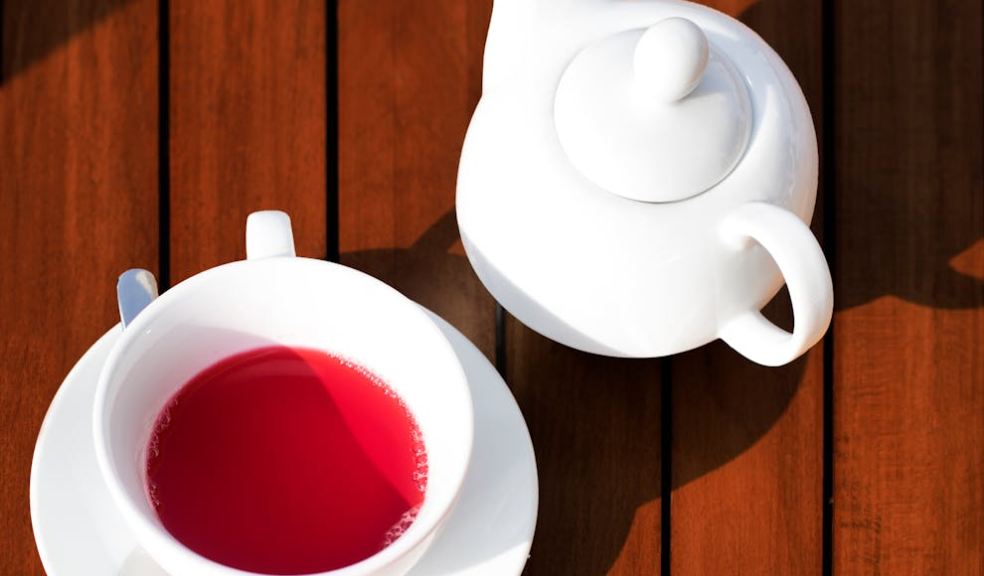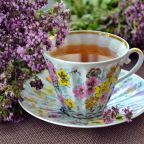
Red Tea and the Rise of Caffeine-Free Wellness Rituals in the UK
As more Britons embrace slow living and caffeine-free lifestyles, red tea (Rooibos) is emerging as a gentle yet powerful herbal ritual for relaxation, self-care, and holistic wellness.
In a nation long defined by its tea culture, the British are turning a new page. While black teas and builders’ brews still have their place, there’s a quiet revolution underway — one that places wellness, ritual, and natural balance at its heart. Enter red tea, also known as Rooibos: a naturally caffeine-free herbal infusion that’s quickly becoming a favourite among health-conscious consumers seeking calmer, more intentional living.
As wellness trends evolve in 2025, red tea is no longer just a niche health shop. It’s now a staple in the cupboards of those embracing the principles of slow living, holistic health, and mindful consumption. This resurgence reveals something deeper than taste preferences — it marks a shift in how we engage with what we consume.
What Is Red Tea?
Often mistaken for a type of black or herbal tea, red tea is actually Rooibos, a plant native to the Cederberg region of South Africa. It has been brewed by the local Khoisan people for generations for its reputed health benefits and gentle, naturally sweet flavour.
Rooibos is not derived from the Camellia sinensis plant (from which black, green, and white teas come), and therefore it is not technically a "true tea." But that hasn't stopped it from gaining traction among those seeking comforting, beneficial infusions — particularly as part of an evening wind-down routine.
Why More Britons Are Saying No to Caffeine
The rise in popularity of red tea parallels a broader societal shift: many consumers are rethinking their relationship with caffeine. Once considered a harmless productivity booster, caffeine is now more frequently scrutinised for its impact on anxiety, sleep, and hormonal balance — particularly among women.
Searches for caffeine-free alternatives have surged, and so have product innovations in the tea and wellness space. Amid this shift, red tea has emerged as a go-to solution. Unlike green or black tea, which still contain caffeine in varying amounts, red tea offers all the comfort of a warm brew without the jitters or sleep disruptions.
This is particularly attractive to people curating their wellness routines to support stress reduction, hormone health, and better sleep — three areas of concern that have skyrocketed in the post-pandemic landscape.
Wellness in a Cup: The Health Benefits of Red Tea
What’s drawing so many toward red tea isn’t just its lack of caffeine — it’s also the long list of potential health benefits that come along with it.
Rich in antioxidants like aspalathin and quercetin, Rooibos is believed to support the body in fighting oxidative stress, reducing inflammation, and even regulating blood sugar levels. Some studies also suggest that regular consumption may aid digestion and contribute to heart health.
For women in particular, red tea’s hormone-balancing and anti-inflammatory properties have added appeal, especially for those navigating hormonal shifts related to stress, menstruation, or menopause.
Of course, wellness isn’t just physical. With its naturally smooth, earthy flavour and warm red hue, red tea lends itself to mindful rituals that help slow the pace of the day. Whether sipped during a morning meditation or as part of a nightly routine, it embodies the idea of tea as a tool for stillness.
Red Tea and the Rise of Ritual-Based Consumption
Beyond health claims, red tea taps into something increasingly important in our fast-paced digital lives: the desire for ritual. In the age of convenience, people are seeking anchors — daily moments of intention and presence. The simple act of brewing a pot of red tea, steeping it slowly, and drinking it mindfully becomes a small ceremony of self-care.
This mindset aligns perfectly with the principles of slow living — a cultural shift that values sustainability, mindfulness, and purposeful habits. Red tea’s sustainable harvesting practices and minimal processing appeal to environmentally aware consumers. Its caffeine-free nature makes it ideal for winding down after work or enjoying moments of calm.
For many, the tea cupboard is no longer stocked solely with supermarket staples, but curated with intention — featuring blends that nourish body and soul.
Where to Find Quality Red Tea
As demand for Rooibos grows in the UK, so does the variety in how it's offered — from classic loose-leaf infusions to blends with botanicals like lavender, chamomile, or rose. Yet for those who appreciate tea not just as a beverage but as a craft, loose-leaf options remain the gold standard.
One excellent place to begin exploring high-quality options is TWG Tea, which offers a thoughtful range of loose-leaf red teas sourced and blended with wellness in mind. Whether enjoyed on its own or infused with soothing herbs, their collection celebrates the versatility and depth of flavour that Rooibos can offer.
Loose-leaf tea not only provides a fuller flavour experience but also supports sustainable consumption by reducing reliance on bleached tea bags and single-use packaging.
A New Kind of Comfort
In times of uncertainty, people naturally gravitate toward comfort — but today, comfort means something different than it did a decade ago. It’s no longer about indulgence or escapism, but about feeling grounded, calm, and clear-headed. Red tea represents this new kind of comfort: one that is nourishing, intentional, and aligned with long-term wellbeing.
As more people choose to build daily rituals around relaxation, red tea is becoming a mainstay of British wellness culture — a quiet, grounding presence in the midst of digital overload and caffeine crashes.
Red Tea, Real Rituals: How Rooibos Became the Brew of the Wellness Generation
Red tea’s resurgence is more than a beverage trend. It reflects a deeper desire to connect, slow down, and take care of both body and mind. For the growing community of mindful consumers, Rooibos isn’t just what’s in the cup — it’s the moment it creates.
In 2025, as wellness continues to shape lifestyle choices across the UK, red tea stands out as a symbol of this gentle revolution — calming, grounding, and profoundly modern.











